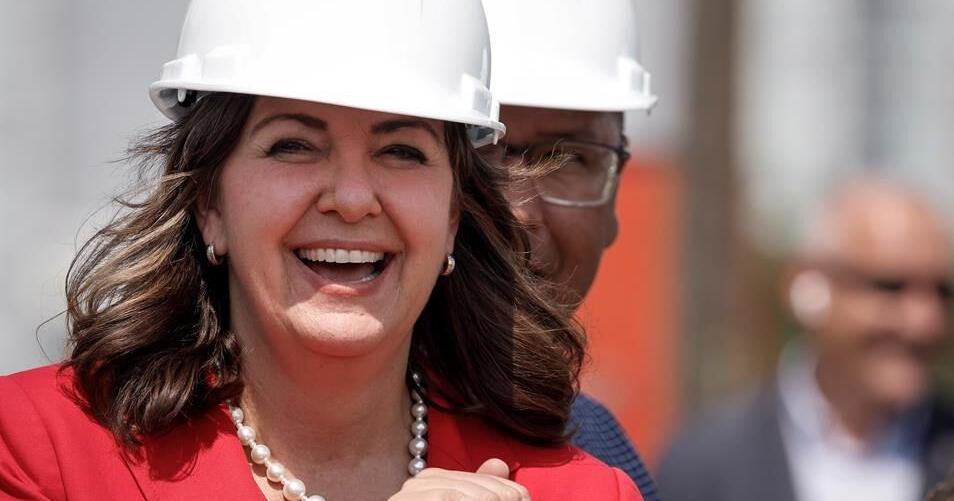EDMONTON – Alberta Premier Danielle Smith says she’s committed to Calgary’s multibillion-dollar Green Line light-rail transit project, but as it was originally envisioned.
Speaking to reporters on Wednesday, Smith declined to say how much her government is now willing to fund.
But she said she is concerned the line is getting shorter while its budget has ballooned from the original price tag of $4.5 billion.
Smith called the Green Line “the incredible shrinking project,” and that it needs a complete “rethink” to be more cost-effective.
“It would cost $20 billion to build that entire line at the per kilometre rate we’re seeing now. That is the kind of project that could bankrupt a city,” said Smith in Lloydminster, Sask.
“I think we just have to do it a different way.”
The premier was making her first public comments on the Green Line since Transportation Minister Devin Dreeshen announced last week the province will pull its $1.53 billion in funding from the $6.2-billion transit project if the city doesn’t change course.
The city’s current city council approved an updated, shortened line in July with an added $700 million in costs.
Calgary Mayor Jyoti Gondek has said that in light of the province’s decision, the city now can’t afford to build the line and the province needs to assume the financial risk.
Gondek has said she met with the premier earlier this week to say what the province wants won’t work. City council is set to meet next week to hear advice on how to abandon the project and offload the costs and delivery onto the province.
Smith, like Dreeshen, said the province is opposed to tunnelling underground for downtown stops as per the latest city plans. Her government also wants to see the rail line go farther into south Calgary.
Dreeshen in a recent interview, said if the city rejects the new alignment proposals, now expected from an engineering firm chosen by the province by the end of the year, the rail line will be on the shelf indefinitely.
If the city votes to try to wash its hands of the financial responsibility next week, Dreeshen suggested there’s another long battle ahead.
“Then it goes to the lawyers, and we’ll have to assess whatever they come up with at that time,” said Dreeshen in a Sept. 6 interview.
He declined to say whether the province would backstop liabilities for delayed or cancelled contracts.
To date, more than $1.4 billion has been spent on land acquisition, utility upgrades and a new fleet of rail vehicles — costs that could be tied to the existing plan.
The dispute has become highly politicized given that former Calgary mayor Naheed Nenshi became leader of the provincial NDP in June. The NDP is the Official Opposition and chief rival to Smith’s United Conservatives.
Nenshi left city hall in 2021. Dreeshen has now labelled the Green Line project the “Nenshi nightmare.” He calls Nenshi responsible for what he terms the mismanagement of the project from the start, saying it was never properly engineered.
Nenshi, in turn, has blamed Dreeshen for turning the Green Line into a political football and putting jobs at risk in the dispute.
Bill Black, head of the Calgary Construction Association, told The Canadian Press last week he doesn’t take sides on the design, but also doesn’t want to see a politicized spat sideline construction.
“It’s hard not to feel like the kids when the parents are going through a divorce, where the kids are always the collateral damage when the parents are fighting,” he said.
The federal government, which has also committed $1.53 billion, said it was taken by surprise with the Alberta government’s decision.
Federal Infrastructure Minister Sean Fraser has said Ottawa wants to work with Alberta on next steps, saying the withdrawal of provincial funding will impact thousands of jobs.
This report by The Canadian Press was first published Sept. 11, 2024.
